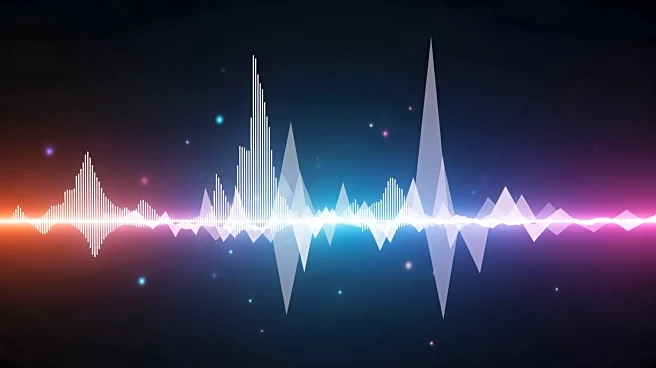What's Happening?
OpenAI is reportedly developing a new generative music tool that can create music based on text and audio prompts. This tool aims to enhance video content by adding musical elements, such as guitar accompaniment
to vocal tracks. The development involves collaboration with students from the Juilliard School to annotate scores, providing training data for the AI model. While OpenAI has previously launched generative music models, this new tool represents a shift towards integrating music generation with other OpenAI products like ChatGPT and the video app Sora. The timeline for the tool's release and its availability as a standalone product remain unclear.
Why It's Important?
The development of a generative music tool by OpenAI could significantly impact the music and entertainment industries by offering new ways to create and integrate music into digital content. This tool could streamline the process of adding music to videos, making it more accessible for creators and potentially reducing production costs. The collaboration with Juilliard students highlights the importance of high-quality training data in developing sophisticated AI models. As OpenAI continues to innovate in the field of generative AI, this tool could set new standards for music creation and integration, influencing how content is produced and consumed.
What's Next?
OpenAI's generative music tool may lead to further collaborations with educational institutions and industry professionals to refine and expand its capabilities. The tool's integration with existing OpenAI products could enhance user experience and broaden its application across various platforms. Stakeholders in the music and entertainment industries may need to adapt to the changing landscape as AI-generated music becomes more prevalent. Additionally, ethical considerations regarding AI's role in creative processes may prompt discussions on intellectual property rights and the value of human creativity.
Beyond the Headlines
The development of AI-generated music tools raises questions about the future of music creation and the role of human artists. As AI becomes more capable of producing complex musical compositions, the industry may face challenges in defining originality and creativity. This could lead to shifts in how music is valued and monetized, potentially affecting artists' livelihoods. Furthermore, the integration of AI in music creation may influence cultural perceptions of art and creativity, prompting debates on the authenticity and emotional impact of AI-generated content.











